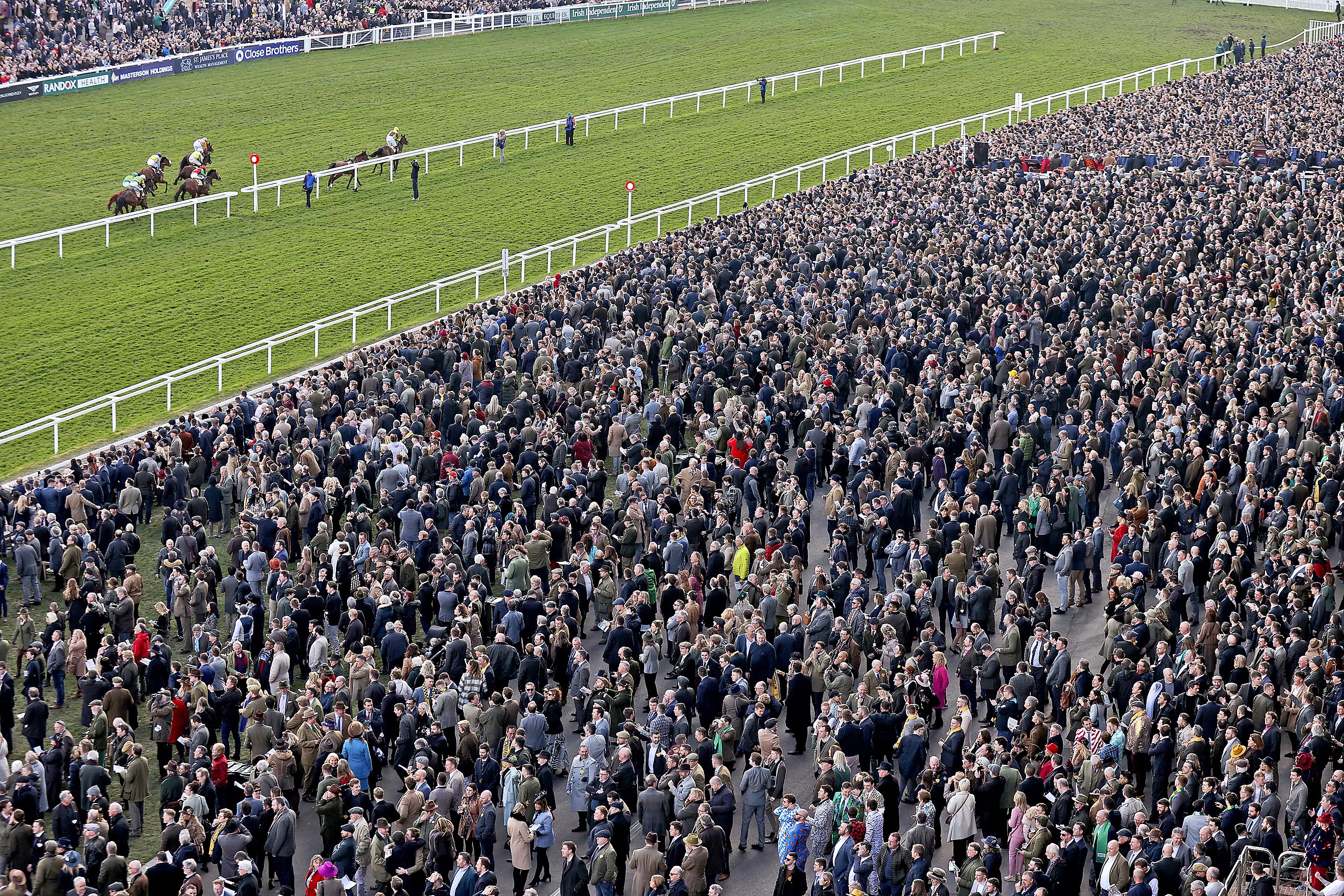Calls for Investigation into Cheltenham Festival Role in Spreading Coronavirus in UK
Posted on: April 24, 2020, 04:32h.
Last updated on: April 24, 2020, 07:53h.
Cheltenham is a big deal in UK horse racing and a key event on any bookmaker’s calendar. This year, it ran from March 10 to 13, attracting 125,000 racegoers to the town of Cheltenham in the west of England. But some local politicians and public health experts believe it should not have gone ahead at all and blame it for accelerating the spread of the coronavirus.

The Cheltenham Festival occurred a week after the first cases of community spread of the disease had been recorded in the UK. The seriousness of the situation was gradually beginning to dawn on the British public.
Nevertheless, at the time, the government’s strategy was one of mitigation, to keep Britain open in the hope that the population would slowly acquire herd immunity to the virus.
Just three days after Cheltenham, new modeling from Imperial College London suggested this strategy would lead to 250,000 deaths from COVID-19 and to the health system becoming overwhelmed. The government quickly switched its strategy, adopting the widespread social distancing measures that remain in place today.
‘It Should Have Been Stopped’
This week UK culture secretary Oliver Dowden defended the decision to let Cheltenham go ahead.
“The risk at mass gatherings was no greater or less than it would have been in pubs or restaurants, and the advice at that point was that we did not need to ban mass gatherings,” he told reporters.
But Professor Gabriel Scally, former director of public health in the southwest and visiting professor of public health at the University of Bristol, noted that there seemed to be a higher number of coronavirus cases in the Cheltenham area.
I think it’s very tempting to link it to the Cheltenham Festival,” said Scally. “Really, from a health point of view, [it] should have been stopped in advance.”
On Tuesday, Cheltenham had recorded 125 deaths, roughly double that of several nearby towns. Meanwhile, there have been many anecdotal reports of people falling ill at the festival with coronavirus symptoms.
Liverpool-Atletico Controversy
Also in the spotlight is the Champions League Soccer clash between Liverpool and Atletico Madrid, which took place at Liverpool’s’ Anfield stadium on March 11. The game was attended by 3,000 traveling fans from Spain, which was ahead of the UK in its levels of coronavirus transmission, and where partial lockdown was already in force.
Liverpool mayor Steve Rotheram told the BBC this week he wanted an independent investigation into the surge of cases in his city since the game.
“If people have contracted coronavirus as a direct result of a sporting event that we believe shouldn’t have taken place, well, that is scandalous,” he said. “That’s put not just those people in danger, but those frontline staff in the National Health Service and others in their own families that may have contracted it.”
As of Thursday, 246 people had died from COVID-19 in Liverpool’s NHS hospitals.
A total of 18,738 have died in the whole of the country as a result of the coronavirus.
Related News Articles
Most Popular
Las Vegas Overstated F1 Race’s Vegas Impact — Report
LOST VEGAS: ‘Tony The Ant’ Spilotro’s Circus Circus Gift Shop
Mega Millions Reportedly Mulling Substantial Ticket Price Increase
Las Vegas Strip Stabbing Near The Strat Leaves One Man Dead
Most Commented
-
End of the Line for Las Vegas Monorail
— April 5, 2024 — 90 Comments -
Mega Millions Reportedly Mulling Substantial Ticket Price Increase
— April 16, 2024 — 6 Comments -
Long Island Casino Opponents Love New York Licensing Delays
— March 27, 2024 — 5 Comments -
VEGAS MYTHS RE-BUSTED: Slot Machines Can Be ‘Due’
— April 12, 2024 — 4 Comments
















No comments yet